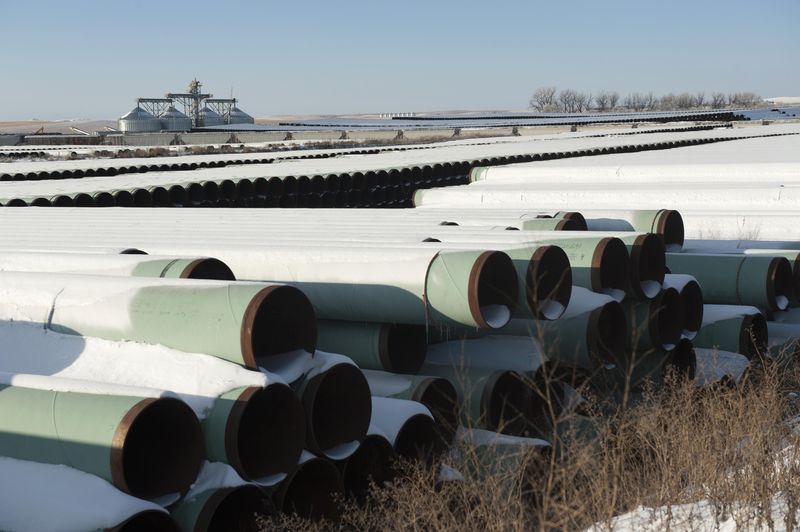By Rod Nickel
WINNIPEG, Manitoba, Sept 23 (Reuters) - A coalition of 75 U.S. and Canadian native groups that opposes expansion of North American oil production will join a U.S. tribe's fight against the Dakota Access pipeline if tensions escalate, a regional Canadian chief said on Friday.
The Standing Rock Sioux oppose the 1,100-mile (1,886-km) pipeline being developed by Energy Transfer Partners LP ETP.N , which they say threatens water supply and sacred sites.
An encampment in North Dakota against the $3.7 billion Dakota Access pipeline represents the largest Native American protest in decades and included one violent confrontation this month between protesters and security guards. can tell you with great certainty that in the event there's an escalation of aggression on the part of the state or (U.S.) federal government, there will certainly be a response on the Canadian side from indigenous peoples," Grand Chief Stewart Phillip of the Union of British Columbia Indian Chiefs said in a phone interview from Vancouver.
Phillip compared the potential for escalation in North Dakota to the 1990 Oka crisis, a land dispute between a Quebec town and a group of Mohawks that turned violent.
Indigenous supporters from Canada are already bringing supplies and financial donations to Standing Rock Sioux, which Phillip said he recently visited.
The Treaty Alliance Against Tar Sands Expansion, made up of North American native groups that signed the treaty on Thursday, also opposes tanker and rail projects over environmental concerns.
Treaty Alliance is "absolutely" willing to illegally block construction of any pipeline proposals that proceed, including TransCanada Corp 's TRP.TO Energy East pipeline across much of Canada and Kinder Morgan (NYSE:KMI) Inc's KMI.N Trans Mountain pipeline expansion in Western Canada, he said.
There are no conditions under which the group would support a pipeline, Phillip said.
Canada is assessing pipeline proposals as the country's energy-rich province Alberta reels from a crash in prices, partly due to insufficient means of moving oil to lucrative international markets.
In Canada, native groups are divided over pipelines, with some opposing them while others, who are producers themselves, want the energy industry to develop, said Perry Bellegarde, national chief of the Assembly of First Nations, which takes no position.
(Editing by Cynthia Osterman)
